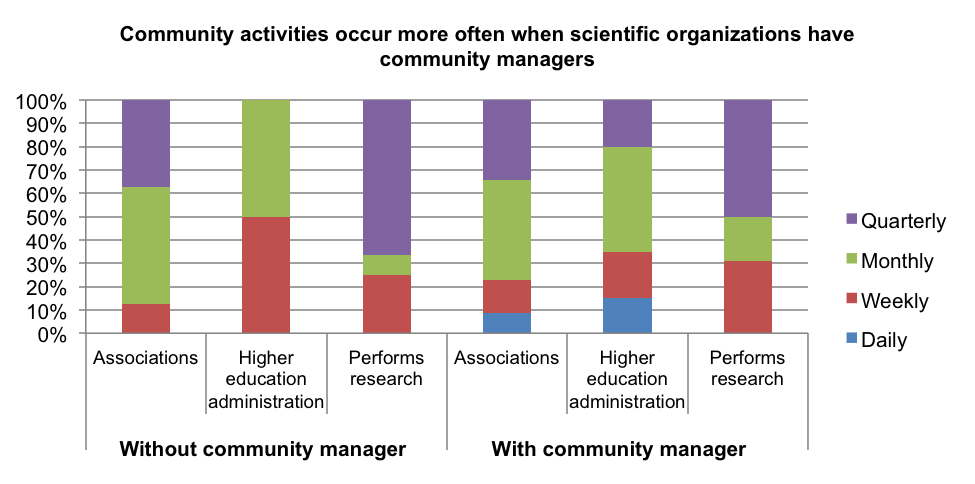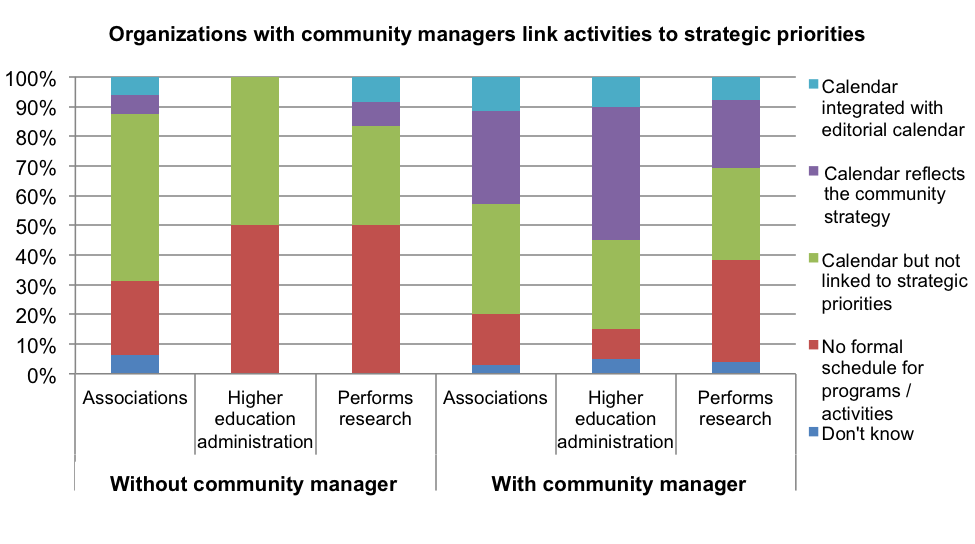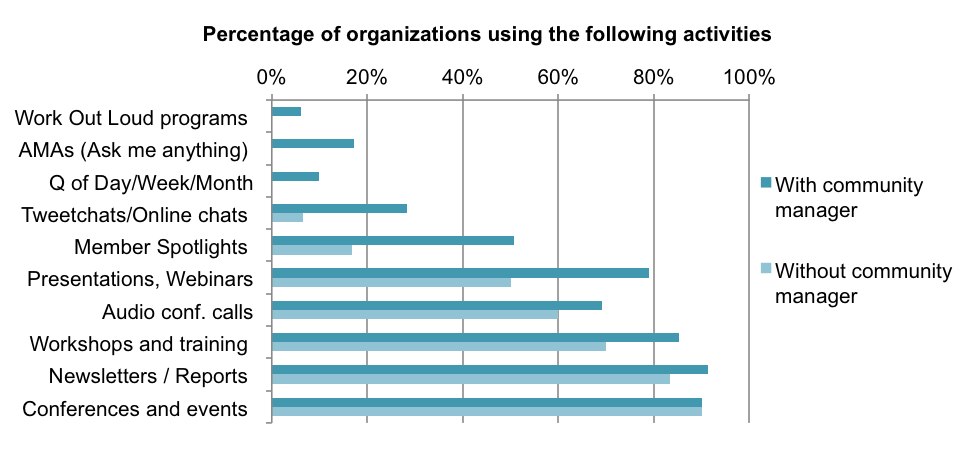We’re back with more insight from the State of Scientific Community Management survey. Previous posts have explored aspects of the community management position, the nature of the organizations where communities are found, and features of the communities themselves such as their communication channels.
In this post we look at three findings about program and activity planning in communities. Read on to see how having a community manager leads to activities that are more frequent, strategically planned, and participatory.
Finding #1: Having a community manager leads to more frequent and regular events
In general, our findings show that the presence of a community manager means a more active event calendar (Figure 1). Associations and higher education environments see more daily activities, while research groups, institutes, or collaborations hold more weekly and monthly events.

Interestingly, in higher education administration environments without community managers, activities occur weekly and monthly, while with community management, some events are more frequent (daily) while others are less frequent (quarterly). In other words, a community manager may help make an organization’s calendar more diverse, with different time intervals for different event types.
Finding #2: Organizations with community managers plan activities more strategically
We find that scientific organizations without a community manager are split approximately 50-50 between having no formal activity schedule or having a calendar that’s not linked to community strategy (how the organization wants to use or develop its community) (Figure 2).
The presence of a community manager greatly increases the likelihood of an activity calendar that reflects a community and communications strategy. Across the board, organizations with community managers are more likely to formally schedule events, and more than 40% of associations, 50% of higher education organizations, and 30% of organizations performing research have activity calendars aligned with community and editorial strategies.

Finding #3: Community managers promote more activities that call for online participation
Only scientific organizations with community managers host work-out-loud events, ask-me-anything events, and questions of the day/week/month (Figure 3). Additionally, tweet chats or online chats and member spotlights are reported much more by organizations with community managers. In contrast, the presence of a community manager did not affect the percent of organizations running audio conference calls, newsletters or reports, and conferences. This reveals the importance of community management for programming that facilitates community participation online rather than conventional communication channels.

In the previous blog post, we discussed how online communities in scientific associations and research organizations are in their earliest stages. The activities described above are examples of the kinds of activities that might be found in these fledgling online communities. This analysis also shows how important it is to have community managers to plan these activities and cultivate this new kind of engagement.
If you’re a scientific community manager, are interested in entering the profession, or are interested in hosting a Fellow at your organization, applications for the 2017 Community Engagement Fellows Program are open through October 16, 2016. You can find information about the program and how to apply at the program home page.